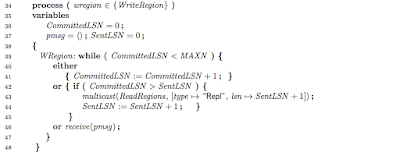Everything is broken
Last Wednesday, I attended one of the monthly meetings of the "Everything is Broken" meet up at Seattle. It turns out I selected a great meeting to attend, because both speakers, Charity Majors and Tammy Butow , were excellent. Here are some select quotes without context. Observability-driven development - Charity Majors Chaos engineering is testing code in production. "What if I told you: you could test both in and before production." Deploying code is not a binary switch; deploying code is a process of increasing your confidence in your code. "Microservices are hard!" as a caption for a figure comparing the LAMP stack 2005 versus the complexity of the Parse stack 2015. We are all distributed systems engineers and unknowns outnumber the knowns! Distributed systems have an infinite number of almost-impossible failures! Without observability you don't have chaos engineering, you have a chaos. Monitoring systems have not changed signi...




